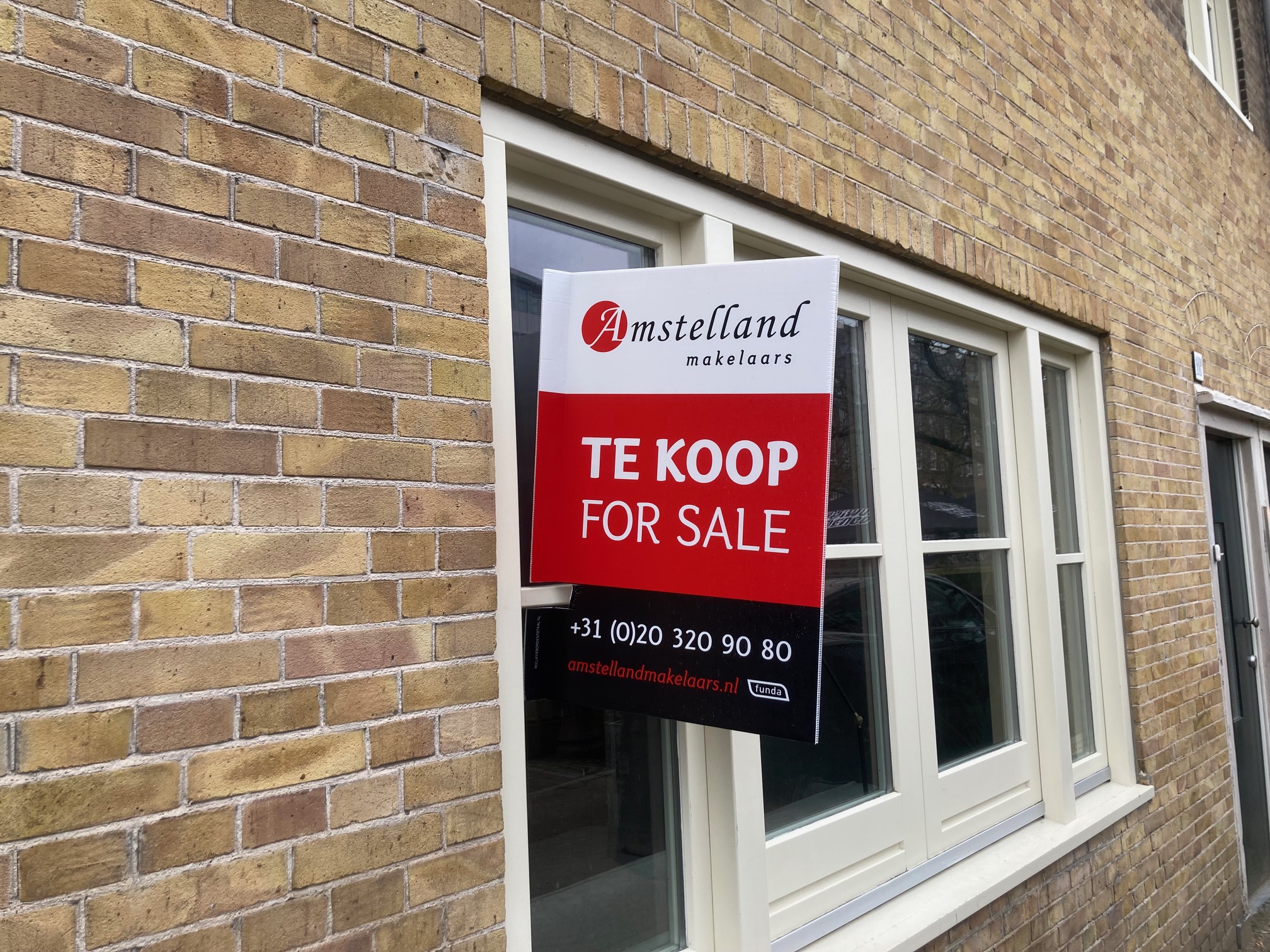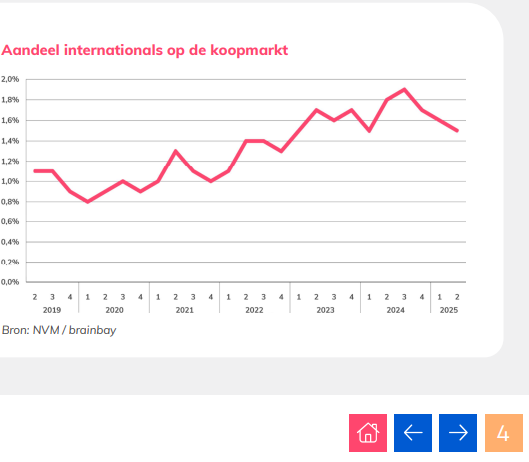Fewer internationals buy homes in the Netherlands: NVM report
Senay Boztas
Internationals bought 1.5% of houses in the Netherlands in the second quarter of 2025, according to a new report from estate agent group NVM and its intelligence division brainbay.
Although local papers report that internationals are “first in the queue” for housing, the proportion of sales going to a foreigner resident in the Netherlands has dropped from 1.8% in 2024.
The new report shows that in general, internationals have very little impact on the Dutch housing market, although in small neighbourhoods their presence in the market can be significant.
Lana Goutsmits-Gerssen, chair of the NVM’s housing group, said the researchers had measured house sales to non-native speakers who settle for a short or longer period and buy through one of the association’s estate agents. “Internationals play an important role in the Netherlands,” she said in an introduction.
“They help to address staff shortages, strengthen our economy, and bring knowledge and diversity with them. At the same time, concerns are increasingly voiced that internationals compete with Dutch house-hunters and, because of their higher incomes, ‘snatch away’ homes.”
While the proportion of internationals buying houses in the country rose from around 1.1% of sales in 2019 to 1.6% or 1.5% this year, she added, “their share is still limited”. The proportion of foreign property buyers peaked at just over 1.8% at the end of 2024 and has fallen steadily since. They are expected to buy around 3,000 properties this year, said press officer René Loman.

Eindhoven
However, in some neighbourhoods, particularly around chip machine maker ASML in Eindhoven, there are concentrations of international buyers who are particularly attracted to high-quality homes that need no renovation, the report found. Dimitry Jansen, owner of JLG Real Estate, said that in Amsterdam six in 10 people who view properties he has listed are foreigners – and an even higher proportion for rental homes, often highly-educated migrants.
In the “Brainport” region around Eindhoven, said Pieter van Santvoort, director of Van Santvoort Makelaars, imported talent plays a “gigantic” role on the housing market. He claimed that in new-build districts such as Meerhoven, half of residents are non-Dutch and “60% to 70% of the buyers”.
Over the country, foreign home buyers are most active in Amstelveen, near Amsterdam, where one in five buyers comes from abroad. In Eindhoven, the proportion is 12% and in Amsterdam it is 11%. Factors such as good international schools nearby, transport and proximity to work are important. More than 50% of internationals who buy a home in the country intend to stay for more than five years.
Risk
While there are some signs that some internationals are looking to buy due to a lack of rental housing, according to a survey amongst NVM agents, the proportion of internationals on the rental market has remained roughly the same at around 25% since the end of the pandemic.
Highly-skilled migrant numbers have dropped and mortgage brokers say that entrepreneurs with American dollar income are being treated as a greater risk this year by Dutch banks, due to concerns about unpredictable policies under Donald Trump.
A labour shortage has long restrained economic growth in the Netherlands, according to the Dutch government and economists. According to a recent demographic commission, the country should grow to 19 or 20 million people to maintain its care system, pensions and current levels of prosperity.
Thank you for donating to DutchNews.nl.
We could not provide the Dutch News service, and keep it free of charge, without the generous support of our readers. Your donations allow us to report on issues you tell us matter, and provide you with a summary of the most important Dutch news each day.
Make a donation